Have you ever wondered why our elders are more susceptible to strokes? It’s because our risk of having a stroke rises with age. Strokes can have devastating effects on a person’s health, including on their mental and physical capacities as well as their ability to enjoy life. It’s crucial to recognise the warning signs and symptoms of a stroke and seek medical attention promptly.
This article will discuss the common symptoms, underlying causes, potential consequences, and recovery options for strokes in older adults. We’ll also explore the importance of home healthcare services in stroke recovery and management. Continue reading to find out how to provide the best possible care for yourself or your loved ones.
When blood flow to the brain is disrupted, brain damage and potentially life-threatening consequences occur. The symptoms of a stroke in the elderly can vary depending on the spot and severity of the stroke. Recognizing common signs and symptoms, on the other hand, can save lives and reduce the risk of long-term damage. Have a look at some of the most common symptoms below:
If any of these symptoms appear, it is necessary to seek immediate medical assistance. Prompt treatment can significantly benefit survival chances and reduce long-term effects.
ALSO READ: Physiotherapy for Stroke Patients
It’s crucial to recognize the signs of a stroke and understand the different types of strokes that can impact the elderly. Here are the most common signs and types of stroke:
Types of Stroke:
The most common causes of strokes in the elderly are high blood pressure, heart disease, diabetes, and smoking. Adopting a healthy lifestyle, managing medical conditions, and taking prescribed medications can help reduce the risk of stroke. However, strokes can still occur and have severe consequences, such as paralysis, difficulties with speech and language, and behavioural changes.
Rehabilitation and therapy, such as physiotherapy, occupational therapy, and speech therapy, are crucial in promoting recovery, strength, mobility, and independence, as well as preventing complications like pressure ulcers and blood clots.
Home healthcare services offer convenient and cost-effective ways for seniors to get the care they require. Consistent care and support are essential for avoiding complications and advancing stroke recovery. By taking a proactive approach to stroke prevention and management, seniors can maintain their independence and quality of life. Home healthcare services provide personalized care, medication management, wound care, and physiotherapy, among other services, that can help seniors recover and regain their independence in the comfort of their own homes.
Life after a stroke can be incredibly challenging for elderly individuals, impacting their mobility, independence, and overall quality of life. However, home healthcare services offer comprehensive care and support for stroke recovery in the comfort of the individual’s own home. With personalized services, ongoing support and education, and strategies for successful stroke recovery, home healthcare services can help individuals recover fully and regain their independence.
Home healthcare services offer a range of personalized services for stroke recovery, including physiotherapy, occupational therapy, speech therapy, and other medical care as needed. These services are tailored to meet the specific needs and goals of each individual, ensuring that they receive the care they require to recover fully. Ongoing support and education are also provided to assist individuals and families in managing the physical, emotional, and practical aspects of stroke recovery. Here are some strategies for successful stroke recovery:
In short, home healthcare services provide comprehensive care and support for stroke recovery, helping elderly individuals regain their independence and improve their overall quality of life. With personalized services, ongoing support and education, and strategies for successful stroke recovery, stroke survivors can achieve their goals and live fulfilling lives.
We all know that stroke is a debilitating condition that can have severe consequences for individuals and their families. Survivors frequently require ongoing care and support, to manage their condition and maintain their quality of life. Home healthcare services for stroke management have grown in popularity because they allow patients to receive treatment in the comfort of their own homes. Home healthcare services for stroke management include the following:
Home healthcare services have many advantages over traditional hospitalizations for stroke survivors. Individuals are treated in the comfort of their own homes, with flexible scheduling and individualised care plans. This results in increased comfort, convenience, and improved results. As a result, for stroke survivors seeking high-quality care in a convenient and comfortable setting, home healthcare services are an excellent choice.
A stroke can have a profound impact on an elderly person’s mobility, independence, and overall quality of life. Elderly stroke survivors require proper care and management to extend their lives. Fortunately, home healthcare services in the UAE offer a range of care options that address the specific needs and goals of stroke survivors.
Home healthcare services provide personalized care and convenience that can help stroke survivors recover and regain their independence in the comfort of their own homes. From medication management and nursing care to wound care and physiotherapy, these services offer a personalized approach to care that has the potential to improve outcomes and give patients a better chance of living a longer, healthier life. With increased comfort, convenience, and specialized care, home healthcare services for stroke management can significantly improve the quality of life of elderly stroke survivors.
Lana Life Care is a pioneering and reliable home healthcare service provider in the UAE, dedicated to providing the best care and compassion to stroke survivors. We offer a variety of services in the comfort of your own home, including specialized care for elderly patients suffering from strokes.
By choosing Lana Life Care, you can rest assured that you or your loved one will receive reliable and personalized care that addresses the specific needs and goals of stroke survivors. Explore the home healthcare options available with us to help your loved ones recover and regain independence, enhancing their quality of life.

